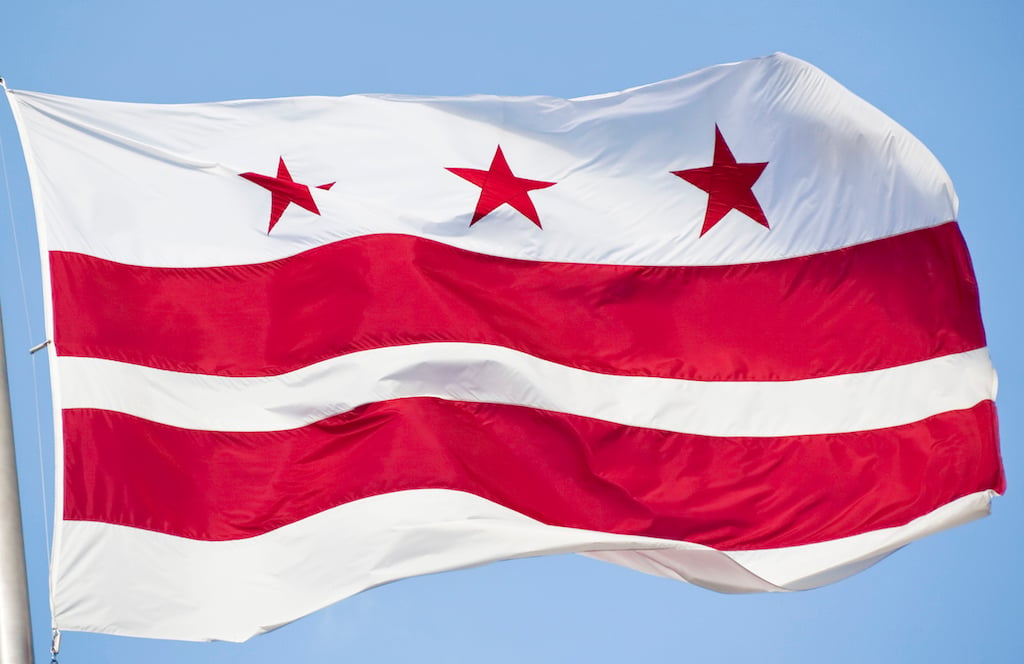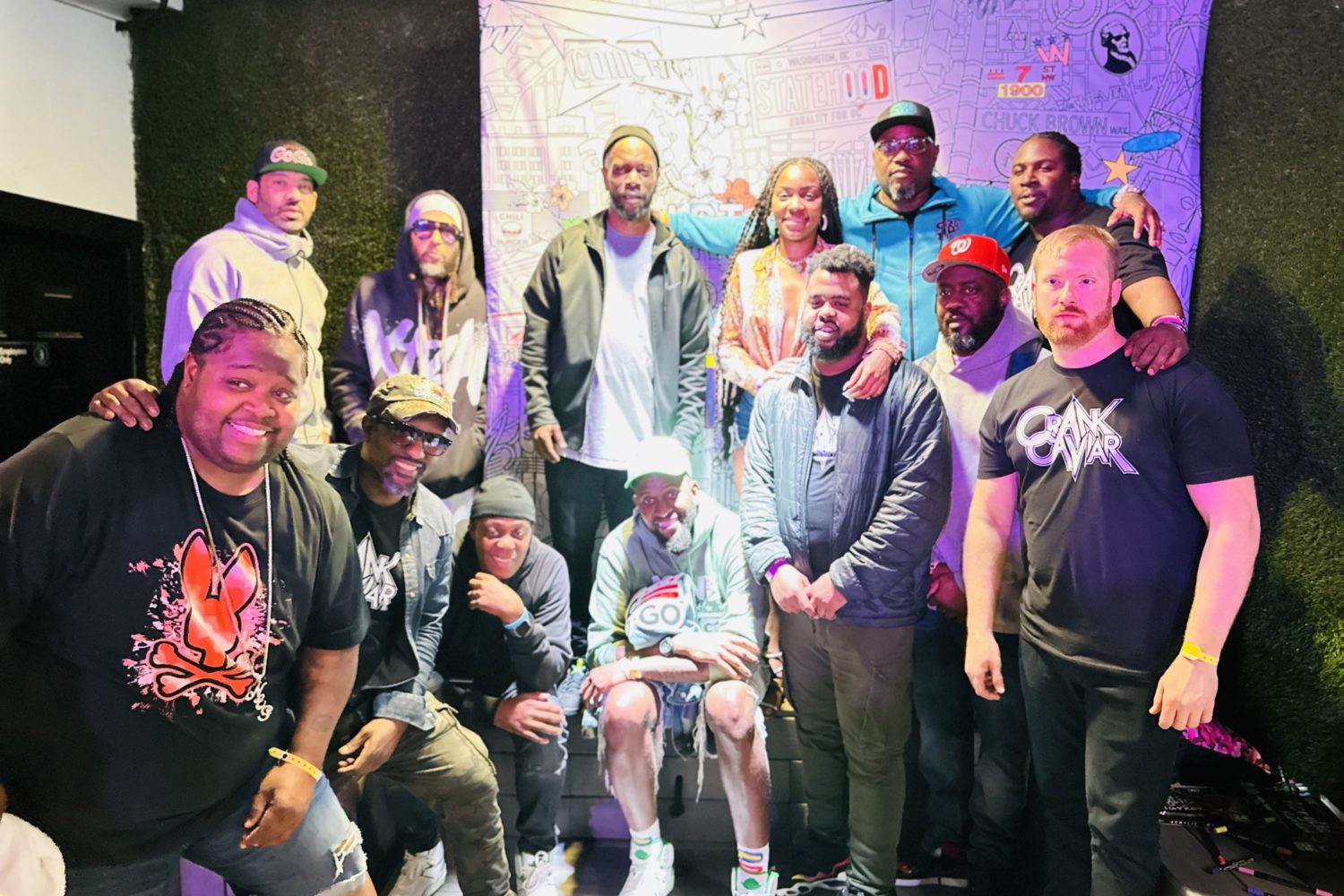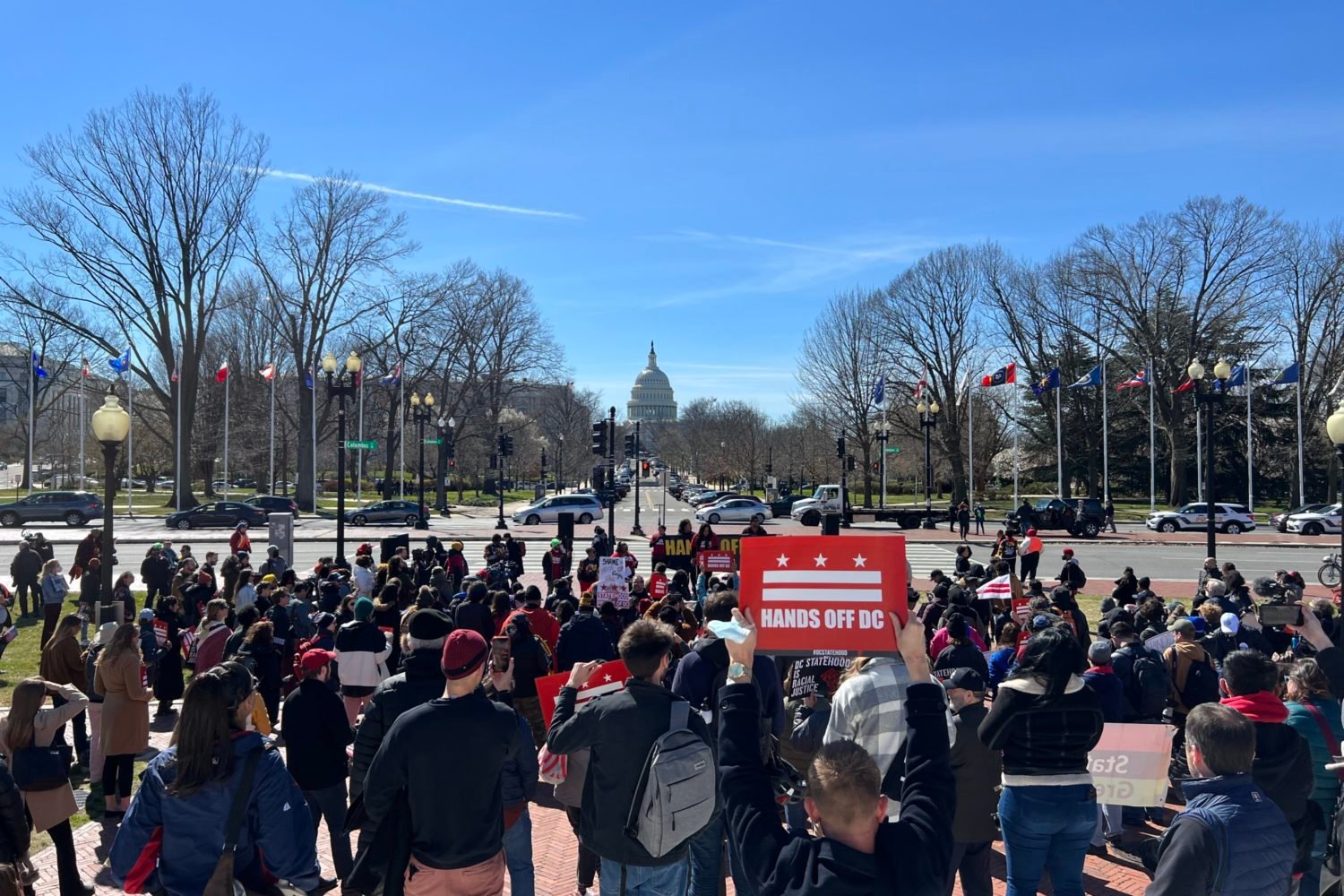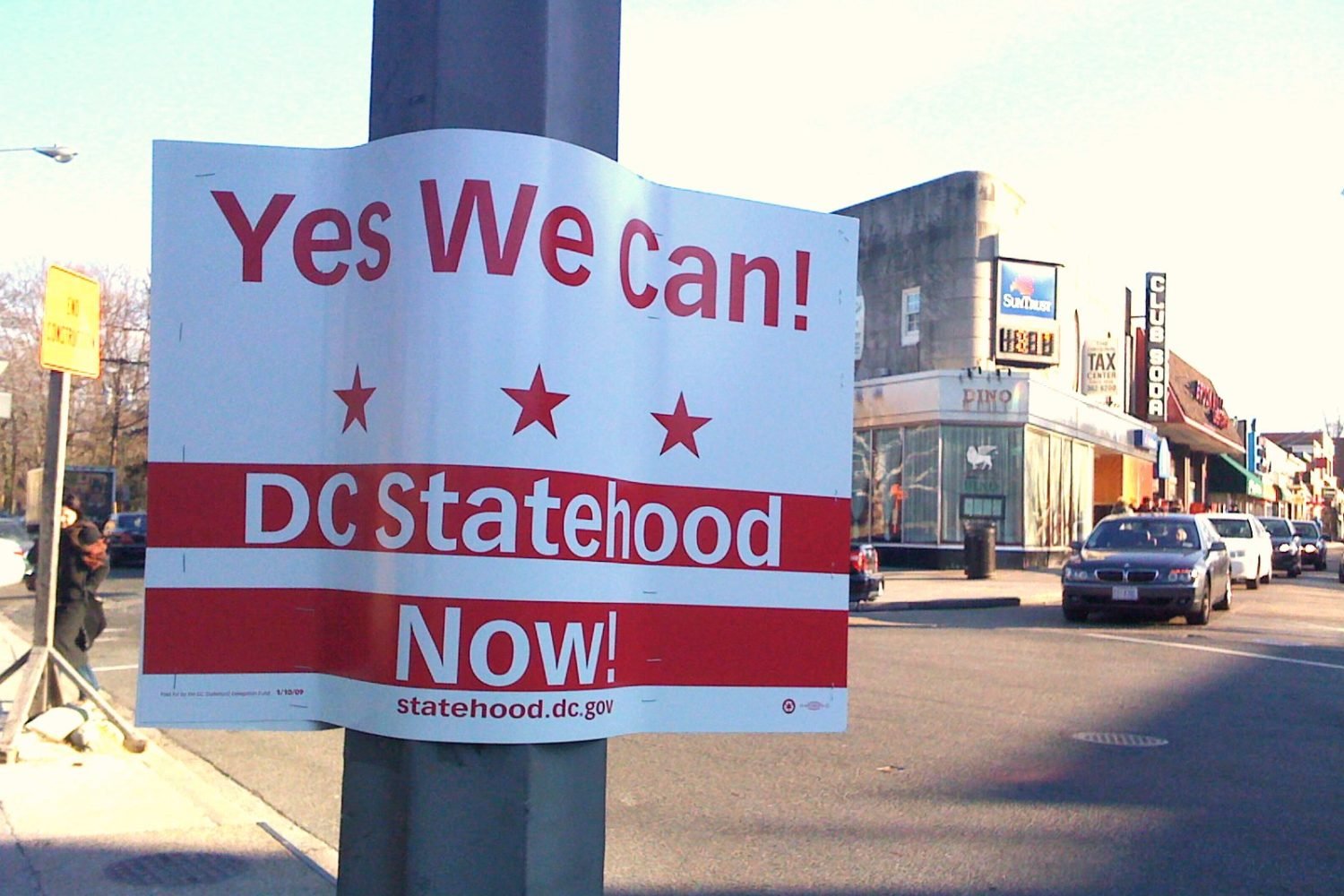The cause of statehood for DC was dealt a new blow with the arrival of an opinion poll from Gallup, which shows strong opposition to the idea. The results of the study, published this morning, show that 64 percent of Americans oppose making Washington, DC the 51st state, while less than a third—only 29 percent—support it. Eight percent had no opinion.
The opinion poll is the largest and most reputable conducted on DC statehood in at least twenty years, and the first time ever the question was tested by Gallup. It comes at a moment when the political fortunes of the issue have risen inside the Democratic party. Nearly every contender for the Democratic presidential nomination has avowed support for making DC the 51st state. Earlier this year, House Democrats voted overwhelmingly to pass a nonbinding measure that endorsed the idea. And this month, Democrats on the Oversight and Reform Committee will hold a hearing on a statehood measure, introduced by District representative Eleanor Holmes Norton, which was scheduled for July 24 but has been pushed back to avoid conflicting with Robert Mueller’s testimony, which will likely dominate the Hill that day.
The last time the issue achieved such mainstream recognition was in 1993, when the House took up a similar initiative to consider statehood, but voted against it by a wide margin. Before that, in 1978, a proposed constitutional amendment to grant statehood was passed by Congress, but failed to be ratified by states before the deadline arrived in 1985.
Polls from that period, however, never showed significant support for statehood. A 1989 poll found 52 percent of Americans opposed it. By 1992, opposition had risen to 57 percent. In 2014, a YouGov poll found that 49 percent of Americans opposed statehood, the lowest level of opposition recorded in memory. But support in that poll was no higher than others, as an unusually large number of respondents merely told pollsters they were “not sure” about the question.
But the Gallup poll sets a new high for levels of opposition, and suggests that the political road to achieving statehood may be harsher than was perceived. In recent years, the mood behind the statehood cause has seen a new energy. A coalition group called 51 for 51 announced plans to push for recognition of statehood in the 2020 campaign cycle. Even a citizens’ group in Iowa has sprung up to campaign on its behalf. The cause has also found favor in the national press, including in the pages of the New Yorker and the Washington Post, where its growing prominence among agenda-setting Democrats in the House and Senate were noted.
Why, then, the sudden uptick in hostility? Polarization may play a role: The same partisan fervor that’s attached itself to statehood may lately be responsible for the entrenched opposition. As Gallup notes, a 1992 poll identified that the gap in support between Democrats and Republicans was only eight points. By 2019, though, the partisan gap had tripled to 24 percentage points; and measured by respondents’ ideology, the gap between liberals and conservatives was even bigger, at nearly 30 points. Republicans may be acutely aware of the consequences of statehood, which likely will deliver two Senators and at least one House member to Democrats. As then-presidential candidate John Kasich described the effort bluntly, statehood for the District would amount to “just more votes in the Democratic Party.”
For statehood proponents, though, the YouGov poll contains a ray of light. When the question was phrased differently—about whether DC residents should enjoy representation in Congress, but no mention of statehood—the results flipped, and a 37 percent plurality favored the idea. Even more telling may be the need for education: YouGov found that when it asked respondents whether DC even had representation or not, 57 percent were unsure or guessed incorrectly.
Gallup also released a poll on the question of statehood for Puerto Rico, another issue that has found support among Democrats. The polls reflect the sensibilities of editor-in-chief Mohamad Younis, the first millennial to helm the 84-year-old organization. Earlier this year, Younis told Washingtonian he planned to take Gallup in a direction that would closely examine issues riven by populist politics. “Are people’s attitudes about what government should be doing going to change? What does that look like, and how does technology change people’s concept of small or big government?” Younis said. “Those are the issues we’ll continue to follow.”


















